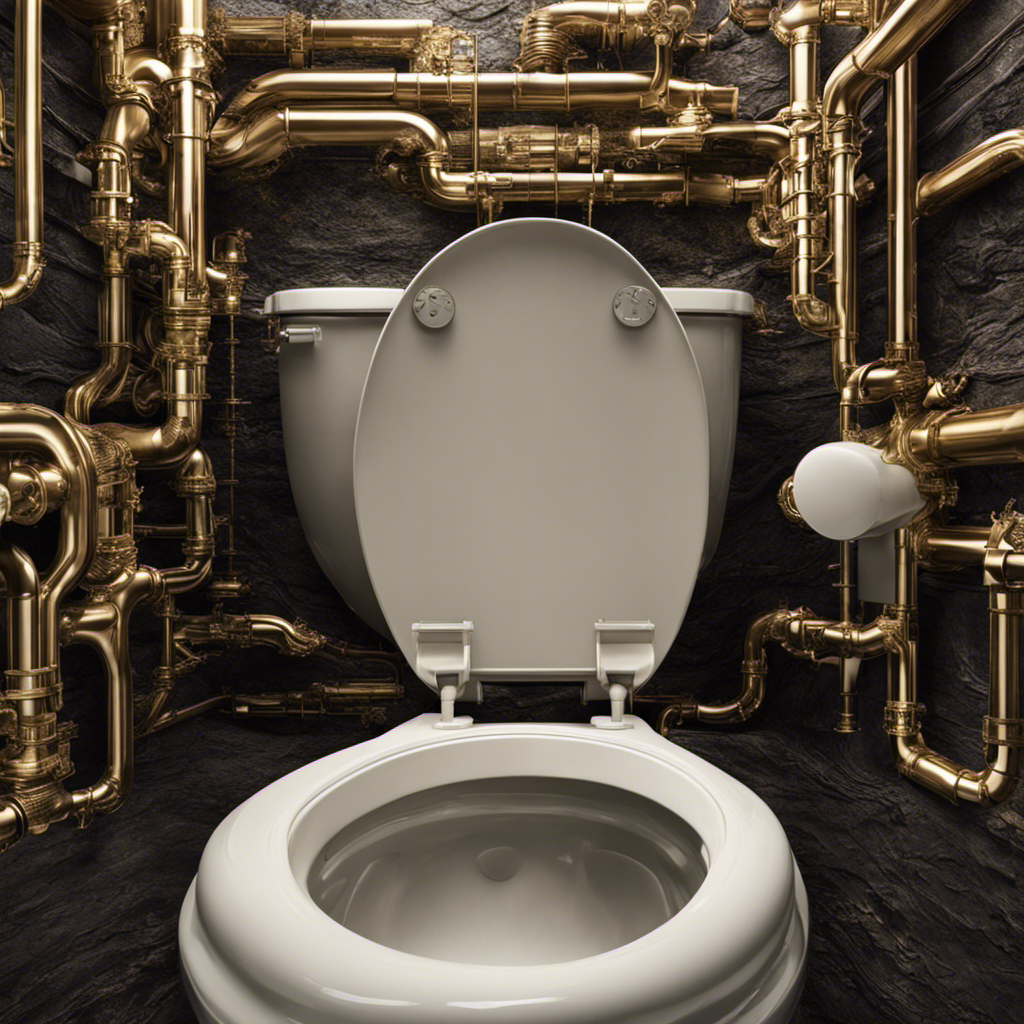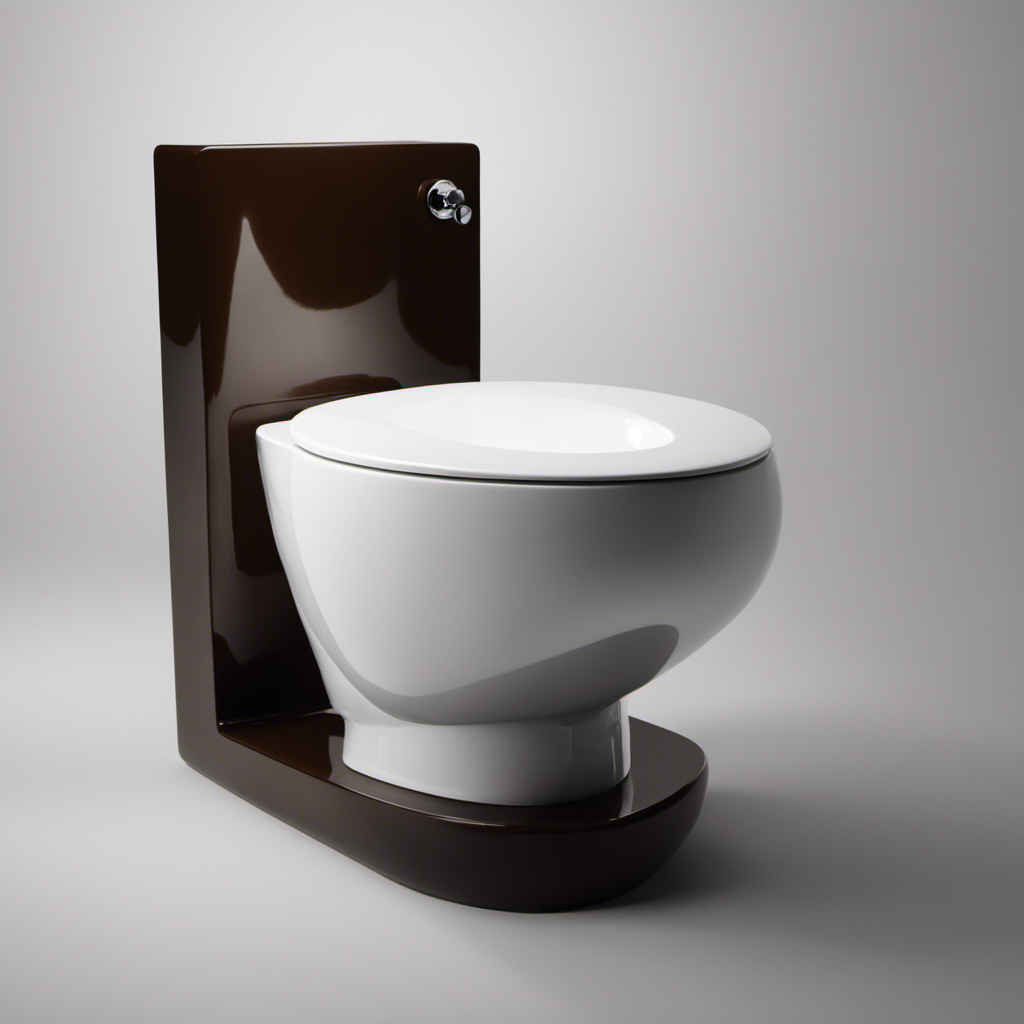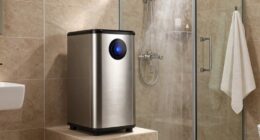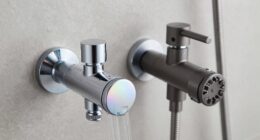Are you gearing up to embark on a journey in your RV, but uncertain about which toilet solution is optimal? Fret not, fellow adventurers, because we have everything you need!
In this article, we’ll dive into the world of RV toilets and explore the different types available. From gravity flush to composting toilets, we’ll break down the pros and cons to help you make an informed decision.
So buckle up and get ready to master the art of choosing the perfect RV toilet!
Key Takeaways
- Gravity flush toilets are the most common and preferred choice for RV owners due to their efficient and straightforward design.
- Macerator toilets offer a more efficient and convenient waste disposal solution, with a built-in grinder that breaks down waste into smaller particles and the ability to pump waste uphill or over long distances.
- Cassette toilets, although requiring regular cleaning and emptying at dump stations, are convenient and space-saving options for RV owners.
- Composting toilets are environmentally friendly, conserve water, provide nutrient-rich compost, and contribute to a more sustainable and eco-friendly RV lifestyle.
Gravity Flush Toilets
The gravity flush toilet is the most common and preferred choice for RV owners due to its efficient and straightforward design. One of the major benefits of gravity flush toilets is their ability to effectively remove waste using the force of gravity, eliminating the need for additional power sources such as electricity or water pressure. This makes them highly reliable and suitable for RVs that may not always have access to these resources.

Additionally, gravity flush toilets require minimal maintenance. To keep them in good working condition, it’s important to regularly clean the toilet bowl and tank, inspect and replace any worn-out parts, and ensure proper ventilation to prevent odors. By following these simple maintenance tips, RV owners can ensure that their gravity flush toilets continue to function optimally throughout their travels.
Macerator Toilets
When comparing macerator toilets to gravity flush toilets, there are several key differences to consider.
Macerator toilets use a grinding mechanism to break down waste before it’s pumped out, making them ideal for RVs with limited space for plumbing. Additionally, macerator toilets offer the benefit of being able to pump waste uphill, allowing for greater flexibility in RV placement.
However, it’s important to note that installation considerations, such as access to power and potential maintenance issues, should also be taken into account when choosing a macerator toilet for an RV.
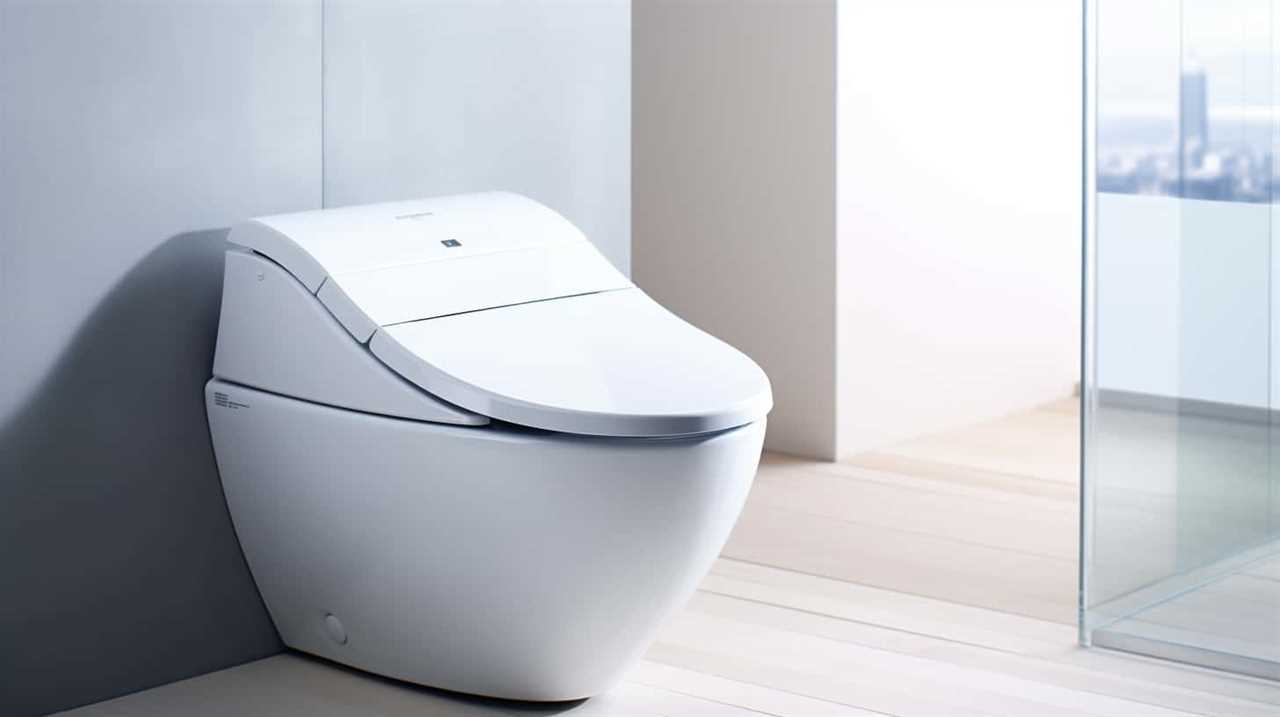
Macerator Vs Gravity Toilets
We prefer using macerator toilets over gravity toilets in our RV. Here’s why:
- Macerator toilets use a powerful grinder to break down waste into a fine slurry, allowing for easy transportation through small pipes. This means you don’t have to worry about clogs or blockages.
- Unlike gravity flush toilets, macerator toilets can be installed anywhere in your RV, even below the main sewer line. This flexibility allows for more efficient use of space and easier installation.
- Macerator toilets have a sealed system that prevents odors from escaping. This is especially important in the confined space of an RV, ensuring a pleasant bathroom experience.
With these advantages, macerator toilets offer a convenient and reliable solution for waste disposal in your RV.
Now, let’s explore the benefits of macerator toilets in more detail.
Benefits of Macerator Toilets
One major advantage of using macerator toilets in our RV is that they provide a more efficient and convenient waste disposal solution. Macerator toilets are equipped with a built-in grinder that breaks down waste into smaller particles, allowing for easier and more effective disposal. This feature eliminates the need for a traditional gravity-flush system, which can be messy and cumbersome.
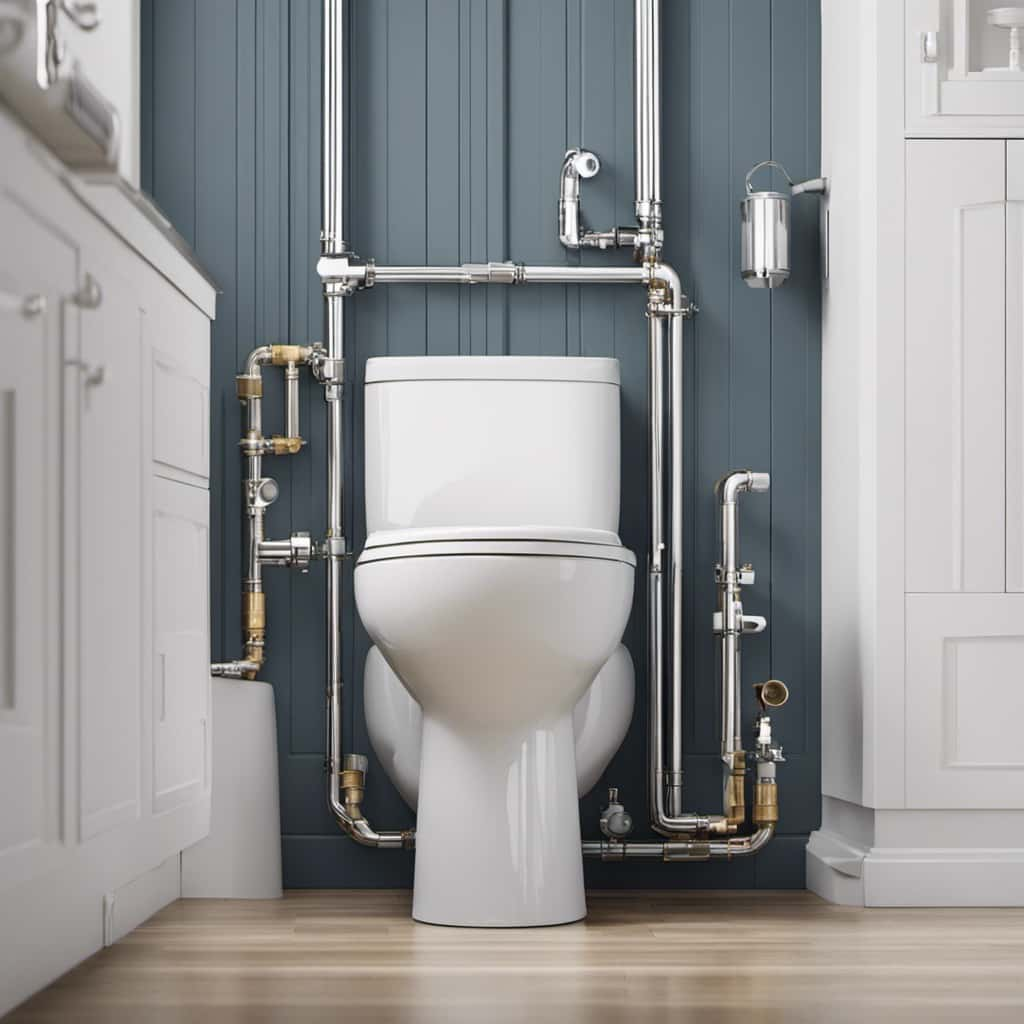
Additionally, macerator toilets have the ability to pump waste uphill or over long distances, making them ideal for RVs that may not have a direct connection to a sewage system. Another benefit is that macerator toilets require less water for flushing, saving both water and tank space.
Overall, the features of macerator toilets make them a practical and efficient choice for RV owners.
In the next section, we’ll discuss the installation considerations for macerator toilets.
Installation Considerations for Macerator Toilets
To install macerator toilets in our RV, we need to consider various factors to ensure a smooth and efficient installation process. Here are three important considerations for the installation process and maintenance requirements of macerator toilets:

- Plumbing compatibility: Before installing a macerator toilet, it’s crucial to check if our RV’s plumbing system is compatible. Macerator toilets require a separate water supply and an electrical connection for the macerator pump.
- Space requirements: Macerator toilets typically require more space than traditional toilets due to the additional components, such as the macerator pump and the holding tank. We need to ensure that we’ve enough space in our RV’s bathroom to accommodate the macerator toilet system.
- Maintenance access: Macerator toilets have specific maintenance requirements, including regular cleaning and maintenance of the macerator pump and the holding tank. It’s essential to consider the accessibility of these components for easy maintenance and troubleshooting.
Considering these factors will help us have a successful installation process and ensure that our macerator toilet performs optimally. Now, let’s move on to discussing cassette toilets.
Cassette Toilets
Cassette toilets are a popular choice for RV owners due to their convenience and ease of use. Unlike portable toilets, cassette toilets are permanently installed in the RV and don’t require any additional setup. They consist of a removable waste cassette that can be easily detached and emptied at designated dump stations.
When it comes to cassette toilet maintenance, regular cleaning is essential to prevent odors and maintain hygiene. Emptying the waste cassette should be done when it reaches about three-quarters full, and it’s important to use RV-specific toilet paper to avoid clogs. Additionally, cassette toilets may require occasional lubrication and seal replacement to ensure proper functionality.
Compared to portable toilets, cassette toilets offer a more seamless and integrated solution for RV owners. They provide the convenience of an onboard toilet without the need for external tanks or frequent disposal. With proper maintenance, cassette toilets can provide a reliable and odor-free sanitation option for your RV travels.

Composting Toilets
Composting toilets offer several benefits for RV owners.
Firstly, they’re environmentally friendly, as they break down waste into compost that can be used as fertilizer.
Additionally, composting toilets require less water and have lower maintenance needs compared to traditional flush toilets.
Proper waste disposal is essential when using a composting toilet, and it’s important to follow the manufacturer’s instructions to ensure proper composting and odor control.

Benefits of Composting
We love the benefits of using a composting toilet in our RV.
Here are three reasons why composting toilets are a great choice for proper waste disposal:
- Environmentally friendly: Composting toilets help reduce our carbon footprint by turning waste into nutrient-rich compost. This natural process eliminates the need for harmful chemicals and reduces the strain on sewage systems.
- Water conservation: Unlike traditional flush toilets, composting toilets don’t require water for flushing. This means we can conserve precious water resources while still maintaining proper hygiene.
- Flexible installation: Composting toilets are compact and can be installed in various locations within our RV. This flexibility allows us to optimize space and design a layout that suits our needs.
By choosing a composting toilet, we not only enjoy these benefits but also contribute to a more sustainable and eco-friendly RV lifestyle.
Now, let’s delve into the next section about proper waste disposal.
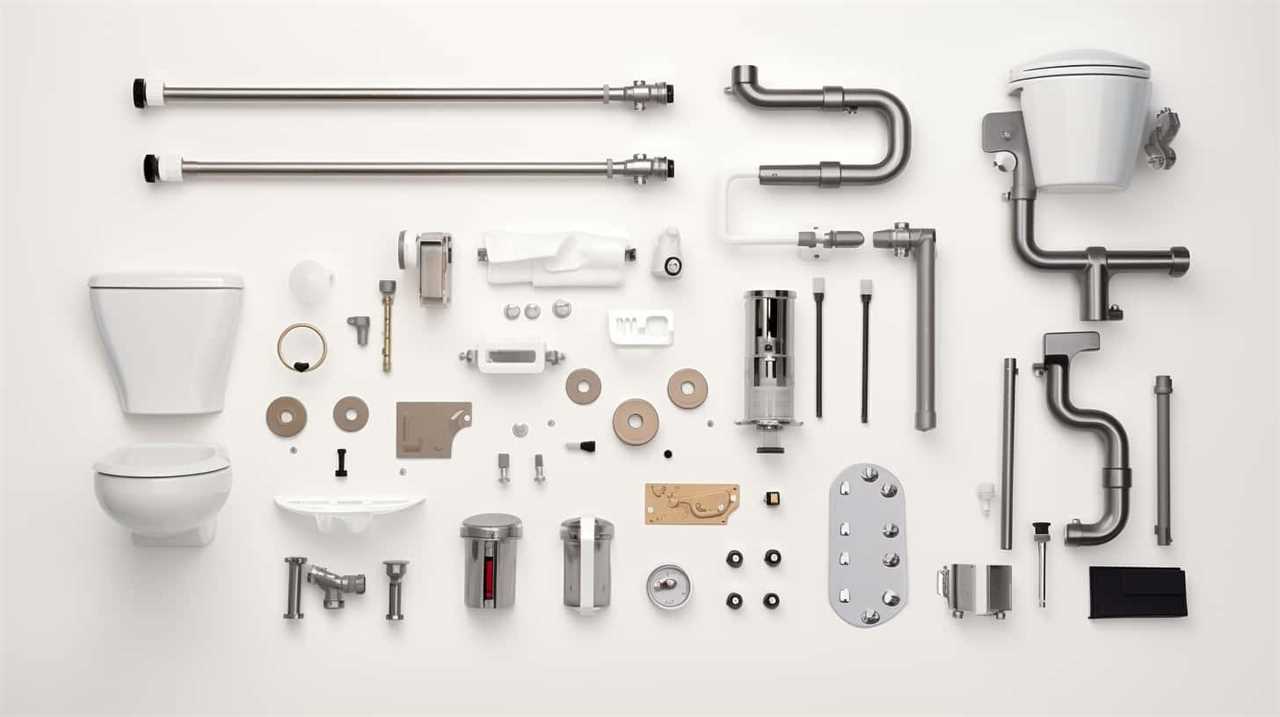
Proper Waste Disposal
Continuing the discussion on proper waste disposal, using a composting toilet allows for efficient and eco-friendly management of RV waste. Composting toilets are designed to separate liquid and solid waste, reducing odor and minimizing the need for water. This sustainable solution not only helps in RV waste disposal but also contributes to the conservation of water resources.
To ensure proper toilet maintenance and maximize the benefits of a composting toilet, it’s important to follow a few guidelines. Firstly, regularly empty the liquid waste container and dispose of it in appropriate facilities. Secondly, add composting material, such as peat moss or coconut coir, to the solid waste chamber after each use. This helps in the decomposition process and controls odor. Lastly, periodically empty the solid waste chamber and transfer the compost to a designated composting area.
Portable Toilets
When considering the best toilet option for an RV, one practical choice to explore is the use of portable toilets. Portable toilets offer convenience and flexibility for RV owners.
Here are three key factors to consider when choosing the right portable toilet for your RV:
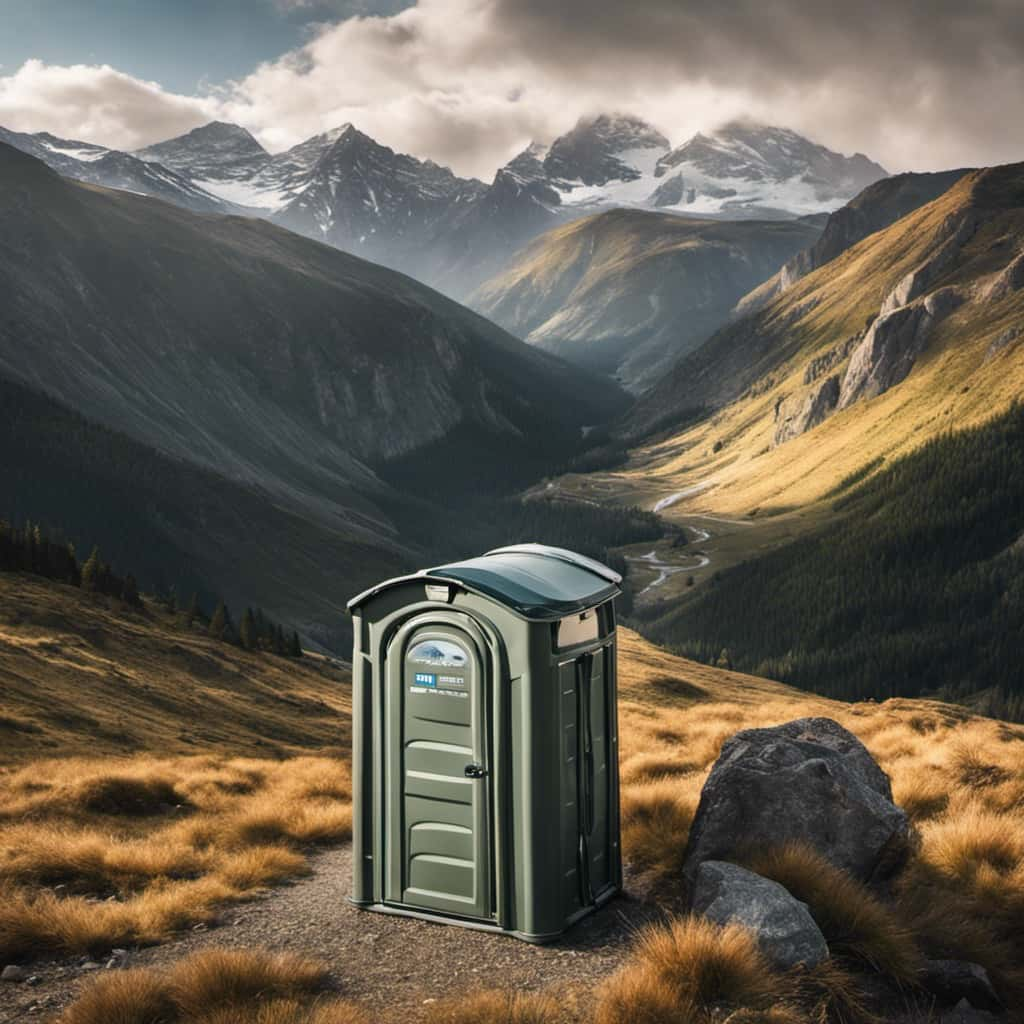
- Portable Toilet Maintenance: Look for a portable toilet that’s easy to clean and maintain. Consider features such as removable waste tanks and detachable lids for effortless cleaning.
- Size and Capacity: Consider the size and capacity of the portable toilet. Make sure it fits well in your RV bathroom and has a sufficient capacity to accommodate your needs without frequent emptying.
- Odor Control: Look for portable toilets with effective odor control mechanisms. Features like sealable waste tanks and deodorant tablets can help minimize unpleasant odors.
Waterless Toilets
After considering portable toilets, another option to explore for the best toilet for an RV is waterless toilets. Waterless toilets, as the name suggests, do not require any water for flushing. Instead, they use innovative technologies to separate solid waste from liquids and eliminate odors.
One of the main advantages of waterless toilets is the minimal maintenance required. Unlike traditional toilets that need regular cleaning and flushing, waterless toilets only need periodic emptying of the waste container. This can be done easily and hygienically, ensuring a hassle-free experience.
Here is a comparison table showcasing the advantages of waterless toilets:
| Advantages of Waterless Toilets |
|---|
| No water usage |
| Minimal maintenance |
| Odor-free operation |
| Eco-friendly |
Waterless toilets provide a convenient and eco-friendly solution for RV owners. With their low maintenance requirements and odor-free operation, they are a practical choice for those seeking a hassle-free toilet experience on the road.

Bidet Toilets
Now, let’s delve into the topic of bidet toilets, which offer a unique and hygienic option for RV owners. Bidet toilets provide several benefits that make them a great choice for your RV bathroom. Here are three key advantages:
- Enhanced cleanliness: Bidet toilets provide a thorough and gentle cleaning experience, using water to cleanse instead of relying solely on toilet paper. This can help improve hygiene and leave you feeling fresh and clean.
- Water conservation: Bidet toilets use significantly less water compared to traditional toilets. With water scarcity being a concern for RV owners, this can be a major advantage, allowing you to conserve water while still maintaining proper hygiene.
- Easy installation: Installing a bidet toilet in your RV is relatively straightforward. Many models are designed to be compatible with existing plumbing systems, making the installation process hassle-free.
Frequently Asked Questions
Can I Use Regular Toilet Paper in an RV Toilet?
Yes, we can use regular toilet paper in an RV toilet, but it’s not ideal. RV toilet paper alternatives, like biodegradable options, are better because they break down faster and prevent clogs. Regular toilet paper can cause issues and require more maintenance.
How Often Do I Need to Empty the Cassette in a Cassette Toilet?
Emptying the cassette in a cassette toilet depends on usage and tank capacity. Regular maintenance is key to avoid odor and clogs. We recommend checking the level and emptying it when it’s around ¾ full.
Are There Any Specific Maintenance Requirements for a Composting Toilet?
When it comes to composting toilet maintenance, there are some specific requirements to keep in mind. Regularly emptying the compost bin and ensuring proper ventilation are essential. The benefits of a composting toilet include eco-friendliness and reduced water usage.

Can a Waterless Toilet Be Used in All Weather Conditions?
Waterless toilet benefits include convenience and water conservation. However, in extreme climates, alternative toilet options for RVs may be necessary to ensure proper functionality and comfort.
Are Bidet Toilets Suitable for Small RV Bathrooms?
Bidet toilets in small RV bathrooms offer the benefits of enhanced hygiene and water conservation. However, their installation may require additional space and plumbing modifications. Space-saving alternatives, like compact composting toilets, can be considered.
Conclusion
In conclusion, when it comes to choosing the best toilet for your RV, it ultimately depends on your personal preferences and needs.
Gravity flush toilets provide a simple and reliable option, while macerator toilets offer convenience and efficiency.
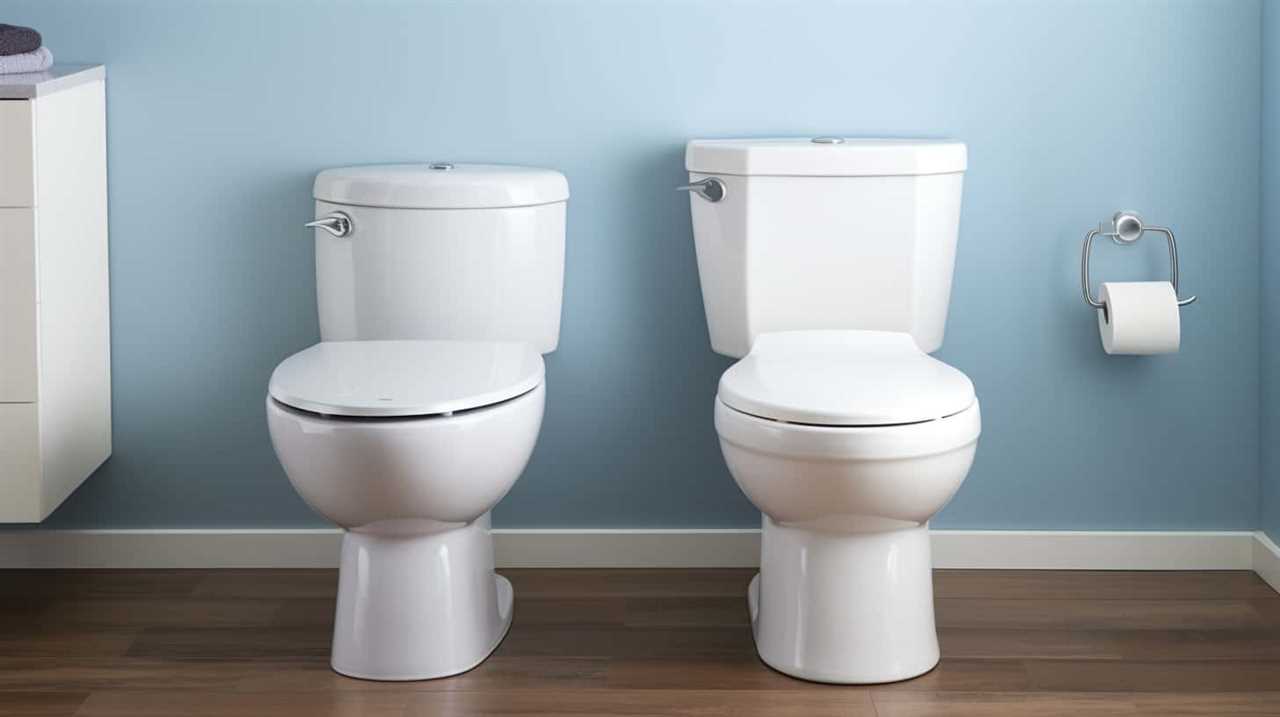
Cassette toilets are compact and easy to empty, while composting toilets are eco-friendly and sustainable.
Portable toilets are versatile for camping trips, and waterless toilets save on water usage.
Bidet toilets add a touch of luxury to your RV experience.
Consider your requirements and make an informed decision for a comfortable journey on the road.




